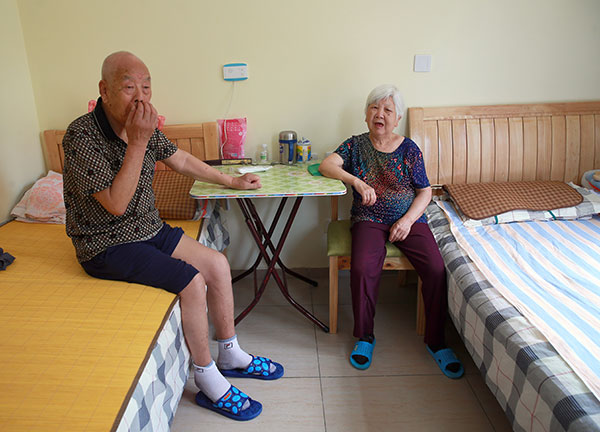Government plans insurance program for disabled seniors
By Shan Juan (China Daily) Updated: 2016-08-08 09:24
 |
|
Liu Wenqi (left) and his wife, Zhai Shuqin, live in a double room at the nursing home in the south of the capital.[Zou Hong/China Daily] |
Aging population
Du's story is not unusual. By the end of last year, there were 222 million people age 60 and older in China, and about 4.5 million of them had severe disabilities that required long-term assistance, according to the National Health and Family Planning Commission.
"The aging trend, a dwindling labor force, and the ever-rising demand for elderly care could be the biggest demographic challenge the country has ever faced," said Zhai Zhenwu, professor of sociology and population studies at Renmin University of China in Beijing.
That view was echoed by Du Peng, a professor of gerontology at Renmin University, who said as life spans become more prolonged, the number of disabled seniors will rise, placing a huge burden on families and society in general.
To solve the problem, both are calling for the rapid formulation and implementation of a government-led, long-term care insurance program.
"It should be compulsory, because illness and disability can hit anyone," said Cao Xinbang, a professor of employment and social welfare at Nanjing University of Finance and Economics.
Under the policy, people would begin paying a monthly premium at a certain age-yet to be defined-and reap the rewards later in life, allowing them to live independently despite their advancing years.
- Subversion of State: 'There's no place for outlaws'
- Lawyers should abide by law: Expert
- China, Russia eye crossings on border island
- Desert sands working magic on aches, pains
- China convicts four for state power subversion
- China launches first mobile telecom satellite
- Regulation targets root of terrorism
- Activist accused of subversion pleads guilty
- Health certificate steps reduced for foreigners
- Guangdong police bust illegal fund-raising gang










